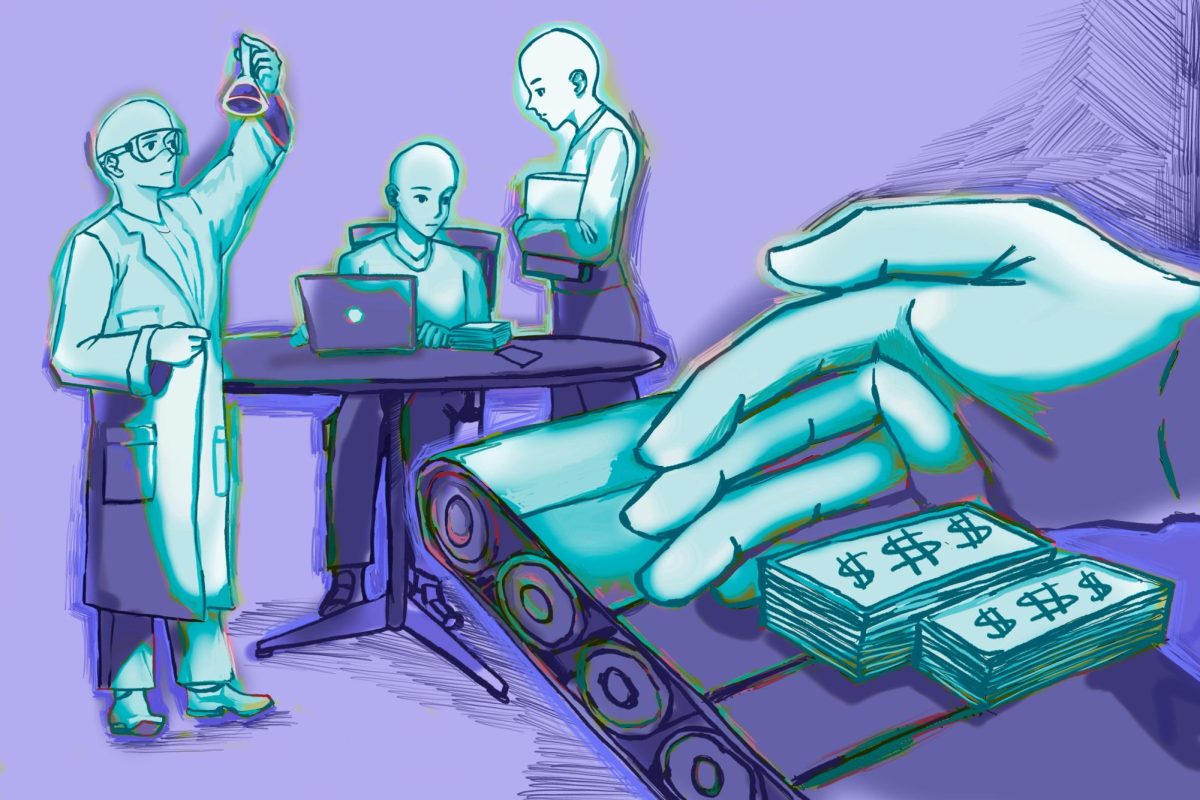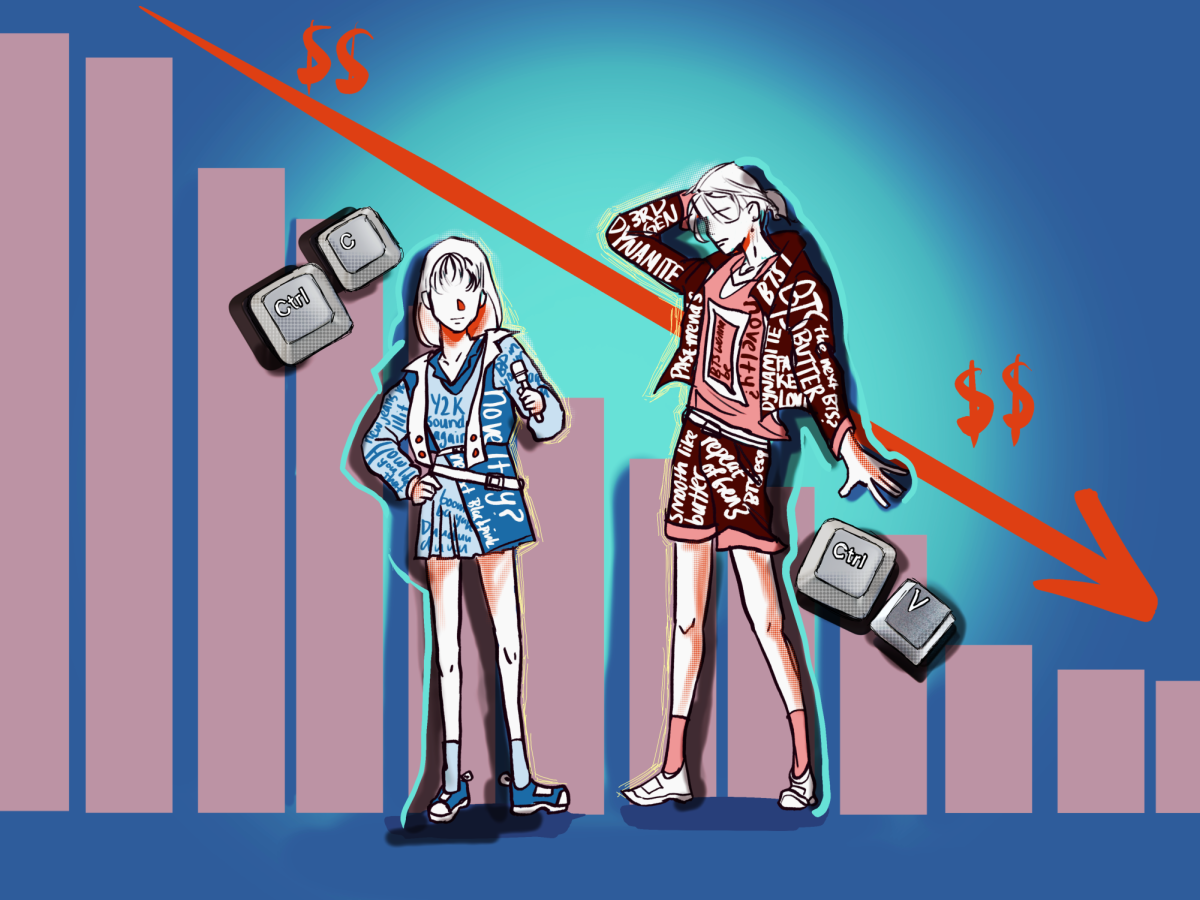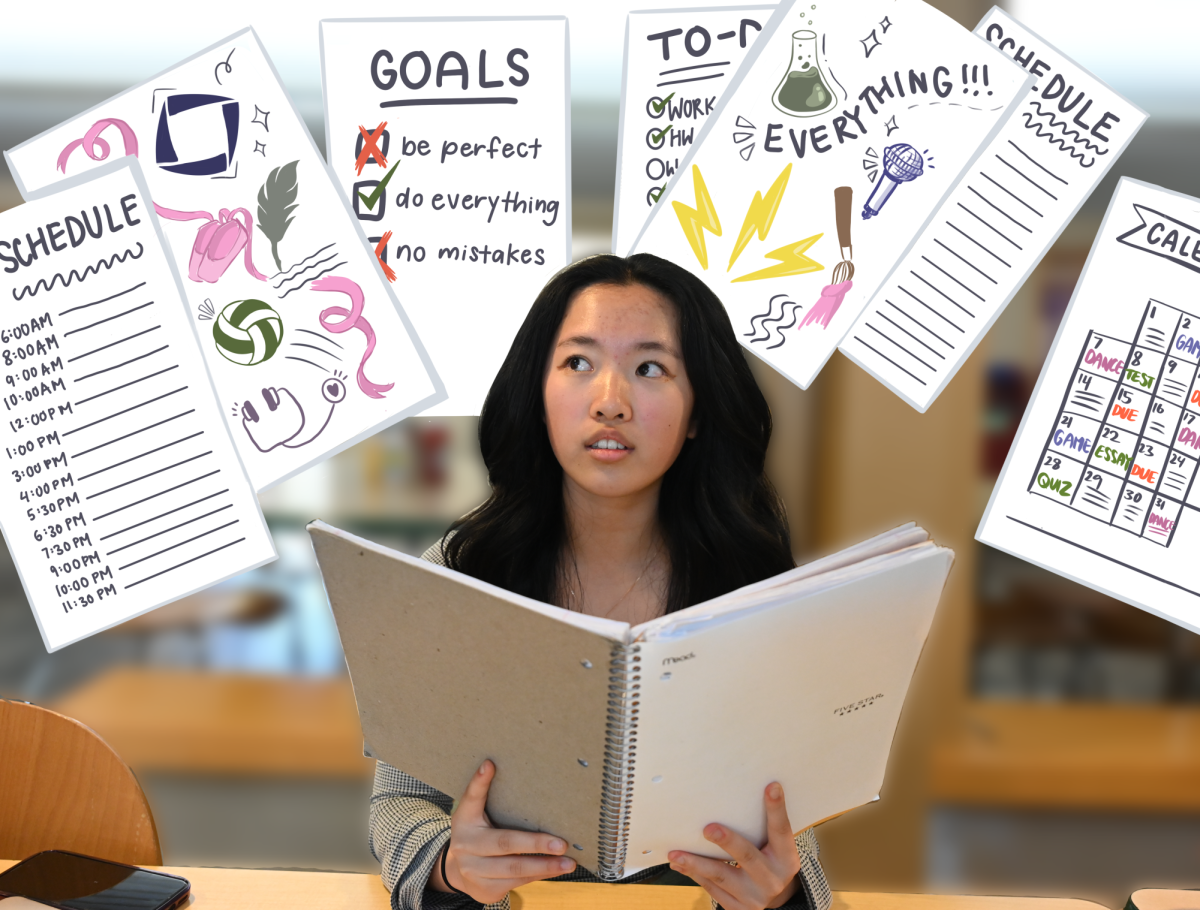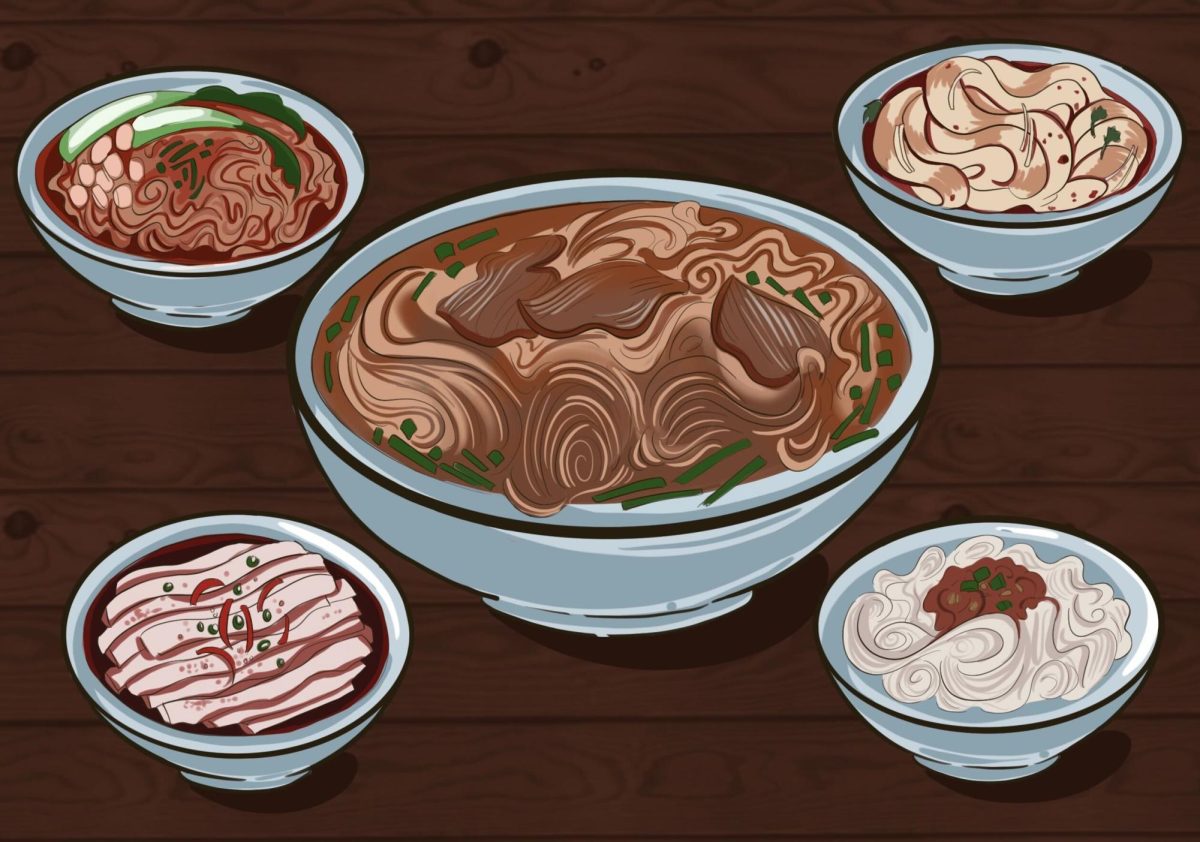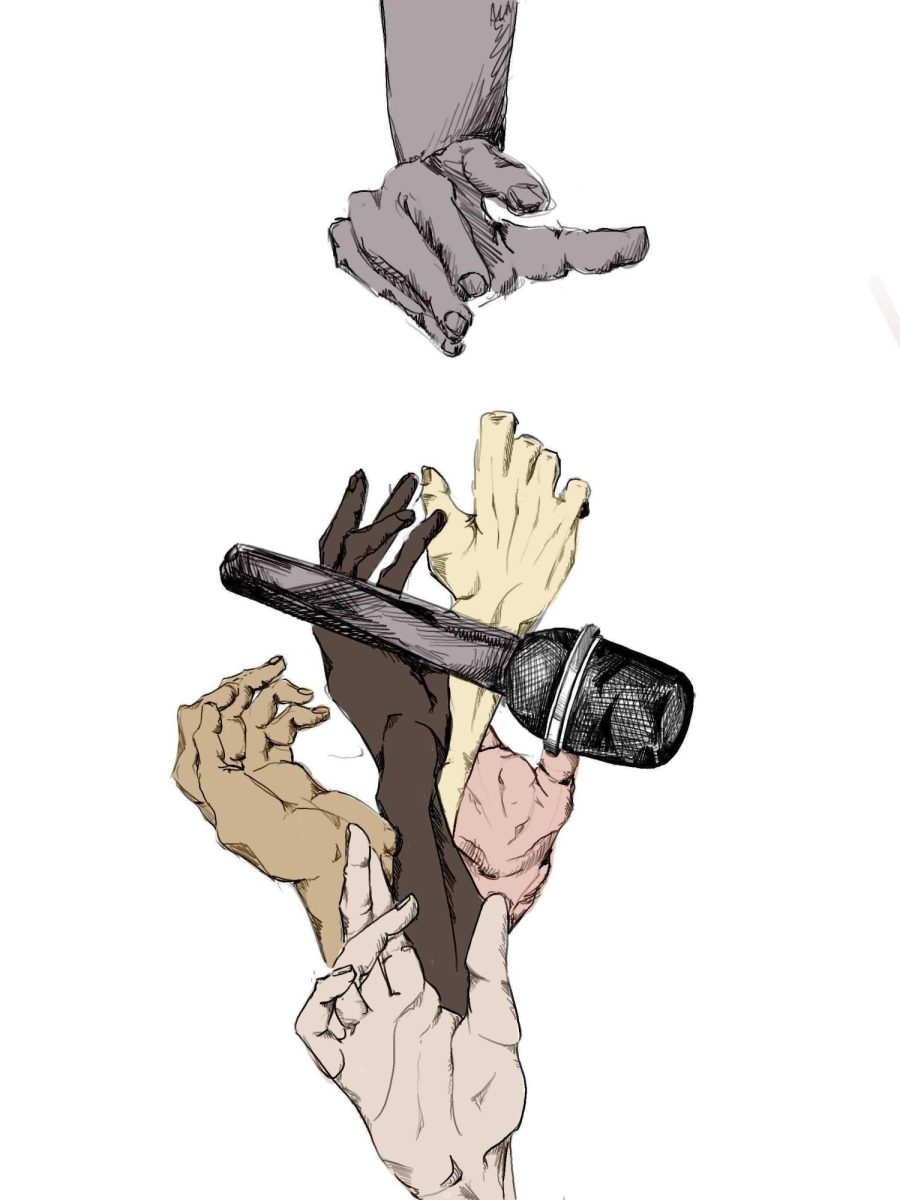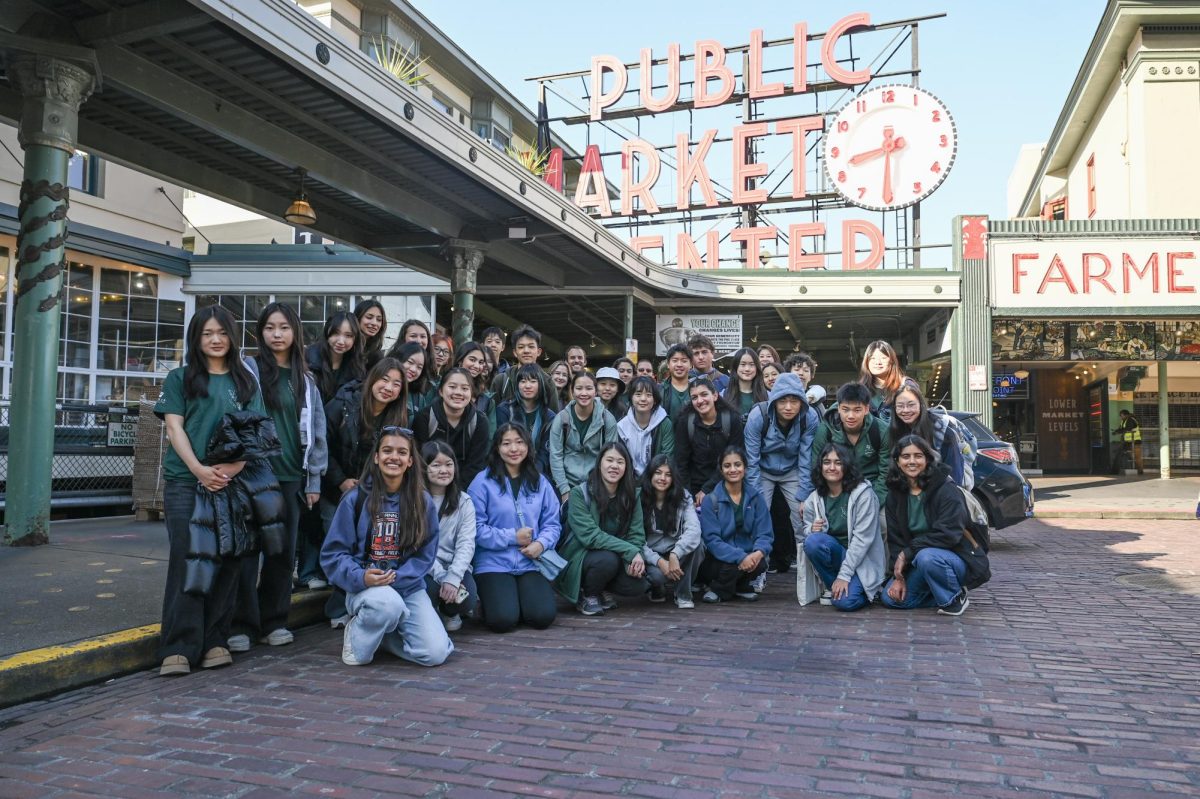As I walk around the upper school campus, I see hundreds of space-gray, silver and rose-gold Macbooks being used for tasks ranging from writing essays to debugging software projects. However, despite their pervasiveness at our school, these laptops lag behind Windows PCs both in terms of their environmental impact and technical capability.
Nowadays, a major consideration for customers when buying anything is carbon footprint. Apple has latched onto this, making boastful claims about their sustainability and extracting public relations and marketing mileage from an unsuspecting public. It is particularly striking that Apple does not channel their famed innovation prowess to help reduce and reuse their products instead of shipping non-repairable, fast-fashion style products that are doomed to become e-waste and end up in landfills around the world when they no longer work. Yet, millions of people still spend hundreds or thousands of dollars on these shiny new devices, oblivious to the environmental price tag. Because of the desire to own the latest and greatest hardware, consumers purchase products often and upgrade them in sync with marketing rhythms.
In particular, Apple has many policies that go against the principle of right to repair, including preventing third parties from accessing the schematics necessary to fix broken components. In response to online criticism, they have taken some strides in this area by introducing a self-service repair program where customers can purchase the parts they need to fix broken devices. Ultimately, by limiting the ability of customers to repair their devices, Apple further incentivizes consumers to just replace their old and non-functional devices instead of fixing them, putting more e-waste in landfills.
In contrast, many Windows devices allow users to replace internal components, which greatly reduces the amount of e-waste generated due to new purchases. iFixit, a company that focuses on helping end consumers repair their devices, assigns laptops scores based on how easy it is to fix them. Their findings revealed that Apple’s products are explicitly engineered in a manner that makes it difficult for them to be serviced in comparison to many Windows devices.
For example, the ever-popular 2019 Macbook Pro received a score of just two out of 10, with repair experts noting that many key parts like the CPU, RAM and storage were all soldered to the motherboard, making it very difficult to repair them in the event of a failure. In contrast, every Windows device examined scored at least a five. Many shoppers in the market for a new laptop are unaware of these details despite the fact that they can result in thousands of dollars in additional expenses and significant waste.
On the technical side, Apple’s limited ecosystem of products means that its customers lack access to many applications that users of other platforms have. For example, many games don’t have Apple-native ports, so Mac users who want to play them have to either tolerate subpar experiences through emulators-programs that enable a host system to run software intended for a different device — or buy entirely new devices. Beyond this, developers often prioritize working on apps for Windows due to its much larger user base, leading to a lack of feature parity.
With Apple’s recent switch from x86 processors to their own ARM based chips, those who use their devices are no longer able to take advantage of dual-booting Windows to run incompatible applications. Dual-booting entails installing multiple operating systems on the same device to give users access to applications that only work on a specific one.
Personally, I have appreciated how my Windows laptop can run pretty much any software out there, since almost all of them are developed with the x86 architecture in mind. The emergence of browser-based applications lessened the problem of necessary software being incompatible with the operating system to some extent, but it’s still frustrating. As a chess player, I often use the database tool Chessbase to review games. However, as there is currently no support for running it directly on OS X, people have to use questionable workarounds to use it.
Another huge win for Windows laptops is in hardware flexibility — it doesn’t take too much digging to see that Apple’s catalog of products don’t offer the range of choices offered by the countless PC manufacturers out there. The exorbitant prices that Apple charges for basic upgrades to memory and storage mean that Windows devices often offer superior performance at a more affordable price.
At the end of the day, choosing between laptops comes down to a whole host of factors that are deeply individualized. However, shoppers in the market for a new device would be wise to do research to be aware of the hidden facets of the products they purchase instead of being sucked in by shiny logos and falling for marketing materials. Although Apple used to urge its customers to “Think different,” they should still strive to make rational choices that provide value while protecting the planet.


















![“[Building nerf blasters] became this outlet of creativity for me that hasn't been matched by anything else. The process [of] making a build complete to your desire is such a painstakingly difficult process, but I've had to learn from [the skills needed from] soldering to proper painting. There's so many different options for everything, if you think about it, it exists. The best part is [that] if it doesn't exist, you can build it yourself," Ishaan Parate said.](https://harkeraquila.com/wp-content/uploads/2022/08/DSC_8149-900x604.jpg)




![“When I came into high school, I was ready to be a follower. But DECA was a game changer for me. It helped me overcome my fear of public speaking, and it's played such a major role in who I've become today. To be able to successfully lead a chapter of 150 students, an officer team and be one of the upperclassmen I once really admired is something I'm [really] proud of,” Anvitha Tummala ('21) said.](https://harkeraquila.com/wp-content/uploads/2021/07/Screen-Shot-2021-07-25-at-9.50.05-AM-900x594.png)







![“I think getting up in the morning and having a sense of purpose [is exciting]. I think without a certain amount of drive, life is kind of obsolete and mundane, and I think having that every single day is what makes each day unique and kind of makes life exciting,” Neymika Jain (12) said.](https://harkeraquila.com/wp-content/uploads/2017/06/Screen-Shot-2017-06-03-at-4.54.16-PM.png)








![“My slogan is ‘slow feet, don’t eat, and I’m hungry.’ You need to run fast to get where you are–you aren't going to get those championships if you aren't fast,” Angel Cervantes (12) said. “I want to do well in school on my tests and in track and win championships for my team. I live by that, [and] I can do that anywhere: in the classroom or on the field.”](https://harkeraquila.com/wp-content/uploads/2018/06/DSC5146-900x601.jpg)
![“[Volleyball has] taught me how to fall correctly, and another thing it taught is that you don’t have to be the best at something to be good at it. If you just hit the ball in a smart way, then it still scores points and you’re good at it. You could be a background player and still make a much bigger impact on the team than you would think,” Anya Gert (’20) said.](https://harkeraquila.com/wp-content/uploads/2020/06/AnnaGert_JinTuan_HoHPhotoEdited-600x900.jpeg)

![“I'm not nearly there yet, but [my confidence has] definitely been getting better since I was pretty shy and timid coming into Harker my freshman year. I know that there's a lot of people that are really confident in what they do, and I really admire them. Everyone's so driven and that has really pushed me to kind of try to find my own place in high school and be more confident,” Alyssa Huang (’20) said.](https://harkeraquila.com/wp-content/uploads/2020/06/AlyssaHuang_EmilyChen_HoHPhoto-900x749.jpeg)






